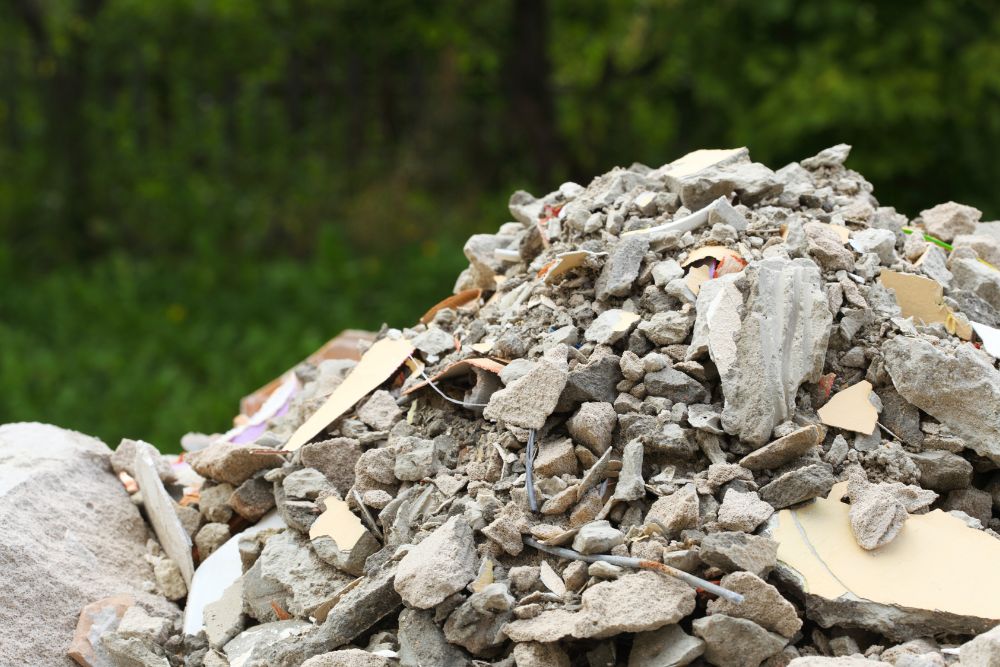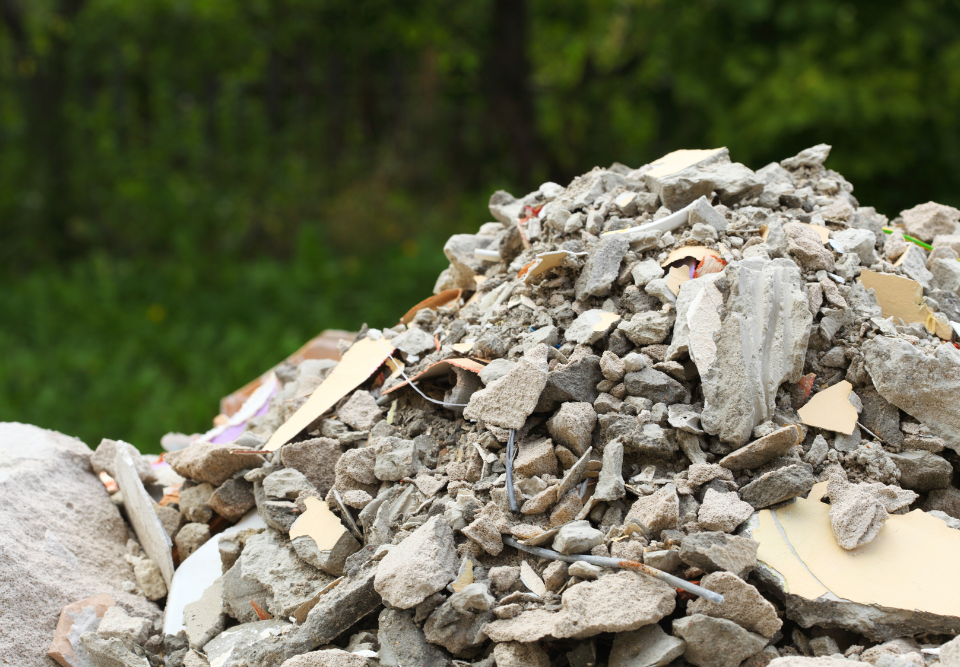
Commercial Junk Removal Why It’s Essential for Your Business
August 26, 2025
How Junk Removal Services Can Keep Your Business Clean and Safe
August 26, 2025The Benefits of Construction Debris Removal for Your Project
Enhancing Safety on the Job Site
Keeping a construction site clean is crucial for maintaining safety. Debris scattered around can create hazards for workers, leading to trips, falls, or injuries from sharp objects. By removing construction debris promptly, a project can avoid unnecessary risks, ensuring everyone on site can focus on their tasks without worrying about dangerous obstacles. This proactive approach not only protects the workforce but also fosters a culture of safety that can positively influence overall productivity and morale.
In addition to preventing accidents, clearing debris helps maintain compliance with local safety regulations. A tidy site reduces the chances of violations from safety inspectors, which can save time and money that might otherwise be spent on fines or project delays. Workers are also able to navigate the site more efficiently, minimizing interruptions and maintaining a smoother workflow. Ultimately, investing in proper debris removal is an investment in both worker well-being and project efficiency.
Improving Project Efficiency and Organization
Construction debris removal directly contributes to the organization of a project site. A cluttered workspace can slow down progress, as workers spend time maneuvering around materials or searching for tools amidst leftover waste. Removing debris keeps pathways clear and allows equipment and materials to be staged appropriately, streamlining the construction process and reducing wasted time. Efficient debris management can even accelerate project timelines, making it easier to meet deadlines.
Organized sites also facilitate better communication among teams. When materials and work zones are clearly delineated, project managers can monitor progress more effectively and address issues quickly. This clarity reduces misunderstandings, prevents delays, and improves coordination between contractors, subcontractors, and laborers. Ultimately, regular debris removal supports a more structured and productive work environment, keeping projects on track and mitigating the risk of costly setbacks.
Protecting the Environment
Proper construction debris removal plays an important role in environmental stewardship. Disposing of materials responsibly reduces the amount of waste that ends up in landfills and ensures recyclable items are properly processed. Segregating debris, such as metals, wood, and concrete, allows for more effective recycling and repurposing, minimizing environmental impact while conserving natural resources. Projects that prioritize sustainable waste management contribute positively to community environmental goals.
Moreover, environmentally conscious disposal practices can enhance the reputation of a construction company. Clients and stakeholders are increasingly valuing sustainability, and demonstrating a commitment to responsible waste handling can strengthen trust and brand perception. By integrating green disposal methods into daily operations, construction teams not only comply with environmental regulations but also showcase their dedication to ethical, forward-thinking practices.

Minimizing Costs Associated with Waste
Neglecting debris removal can lead to higher costs over time. Piled-up waste can damage materials or tools, increase insurance risks, and even cause project delays that affect budgets. By consistently removing construction debris, these potential expenses are mitigated, leading to cost savings. Additionally, efficient removal can optimize storage space and prevent unnecessary purchases of materials that are misplaced or damaged amid clutter.
Hiring professional debris removal services can also be more cost-effective than managing waste in-house. Experts bring the right equipment, manpower, and knowledge to handle disposal efficiently and safely, reducing the need for additional labor or resources from the project team. Strategic debris management allows construction projects to allocate budgets more effectively while maintaining a clean and organized site.
Enhancing Aesthetic Appeal of the Site
A clean construction site is not only safer but also more visually appealing. This is particularly important for projects in visible locations where stakeholders, neighbors, or potential clients may observe ongoing work. Maintaining a tidy environment projects professionalism and attention to detail, enhancing the overall impression of the project. Clear spaces make it easier for teams to showcase progress and demonstrate quality work.
Aesthetics can also influence morale on the job site. Workers tend to feel more motivated and productive in a clean and organized environment, knowing that their efforts are not hampered by clutter and chaos. A visually appealing site promotes a positive atmosphere, which can improve team collaboration and job satisfaction. Cleanliness thus becomes a vital component of both perception and performance in construction.
Facilitating Easy Access and Movement
Construction projects often require heavy equipment and vehicles to move around the site. Accumulated debris can obstruct pathways, making it difficult to transport materials efficiently and safely. Removing debris ensures that machinery can operate without hindrance, reducing the risk of accidents and equipment damage. Smooth access improves operational flow and allows tasks to be completed more swiftly.
Additionally, clear routes support better material handling and logistics planning. When delivery trucks, forklifts, and other equipment can navigate without interruption, the timing of material arrivals and installations is more predictable. Efficient movement across the site minimizes downtime and enhances coordination, contributing to the overall success of the construction project.
Promoting Compliance with Local Regulations
Many municipalities have strict guidelines regarding construction waste and site cleanliness. Failure to adhere to these rules can result in fines, work stoppages, or legal complications. Regular debris removal ensures compliance with local regulations, protecting the project from costly interruptions. A disciplined approach to waste management demonstrates a responsible attitude toward legal requirements.
Proactively managing construction debris also positions a project team as reliable and professional. Inspectors and clients alike can see that safety and environmental standards are prioritized. This proactive compliance can reduce scrutiny and allow construction work to progress smoothly. By integrating debris removal into routine operations, projects maintain a legal and ethical standing in all aspects of construction management.
Reducing Fire Hazards
Accumulated construction debris, especially flammable materials like wood, cardboard, or certain plastics, can create fire hazards. Prompt removal of such waste significantly reduces the risk of fire outbreaks, protecting both the workforce and the structure under construction. Regular cleanup is a critical safety measure that should be integrated into daily routines to safeguard lives and property.
A safer environment also translates to fewer disruptions. Fire-related incidents can halt construction for extended periods and incur substantial costs. By maintaining a debris-free site, the likelihood of fire-related emergencies decreases, allowing the project to proceed without unexpected delays. Effective waste management thus becomes an essential part of comprehensive risk mitigation.
Supporting Project Reputation
The way a construction site is managed reflects on the company handling the project. A clean, organized site signals professionalism, reliability, and dedication to quality. Clients, inspectors, and community members are more likely to trust a company that maintains high standards of cleanliness and safety. This reputation can lead to repeat business, referrals, and stronger client relationships.
Professional debris removal also shows attention to detail in every aspect of the project. From initial groundwork to final touches, a site that is meticulously maintained demonstrates commitment to excellence. Such attention can distinguish a construction company in a competitive market, reinforcing credibility and establishing a standard for operational excellence.
Enabling Smooth Project Closeout
Efficient construction debris removal simplifies the final stages of a project. With a site cleared of waste and unwanted materials, final inspections and handovers can occur seamlessly. A clean site ensures that all project milestones are documented accurately and that nothing is overlooked. This facilitates timely completion and enhances client satisfaction.
Additionally, clearing debris during the project rather than at the end prevents last-minute scrambling, which can be stressful and costly. Smooth project closeout ensures that all parties involved, from contractors to clients, experience a professional and organized conclusion. Integrating debris management throughout the project timeline supports a polished and efficient completion process.
Conclusion
Investing in construction debris removal offers numerous benefits that extend beyond mere cleanliness. From enhancing safety and efficiency to protecting the environment and reducing costs, a well-maintained site fosters both operational and reputational advantages. Clean sites improve accessibility, ensure compliance with regulations, and reduce hazards, supporting smoother project execution and better outcomes.
When it comes to reliable junk removal services, North Bay Junk Removal in Santa Rosa, CA, is a trusted partner for managing construction waste. Their team brings expertise, equipment, and professionalism to every project, ensuring that debris is handled efficiently and responsibly. For projects of any scale, contacting them at 707-478-6817 can help streamline site management while maintaining safety, organization, and environmental responsibility. Professional junk removal contributes to a cleaner, safer, and more successful construction experience.


